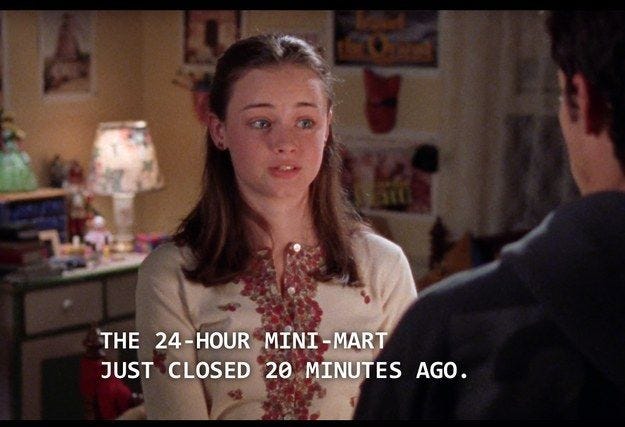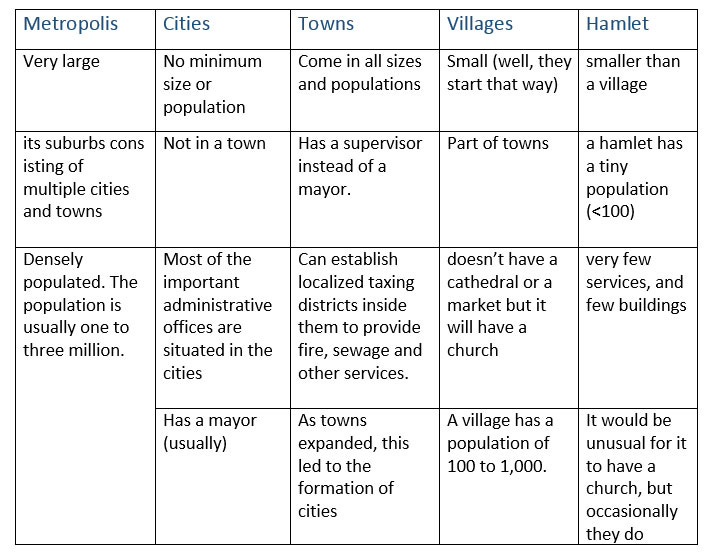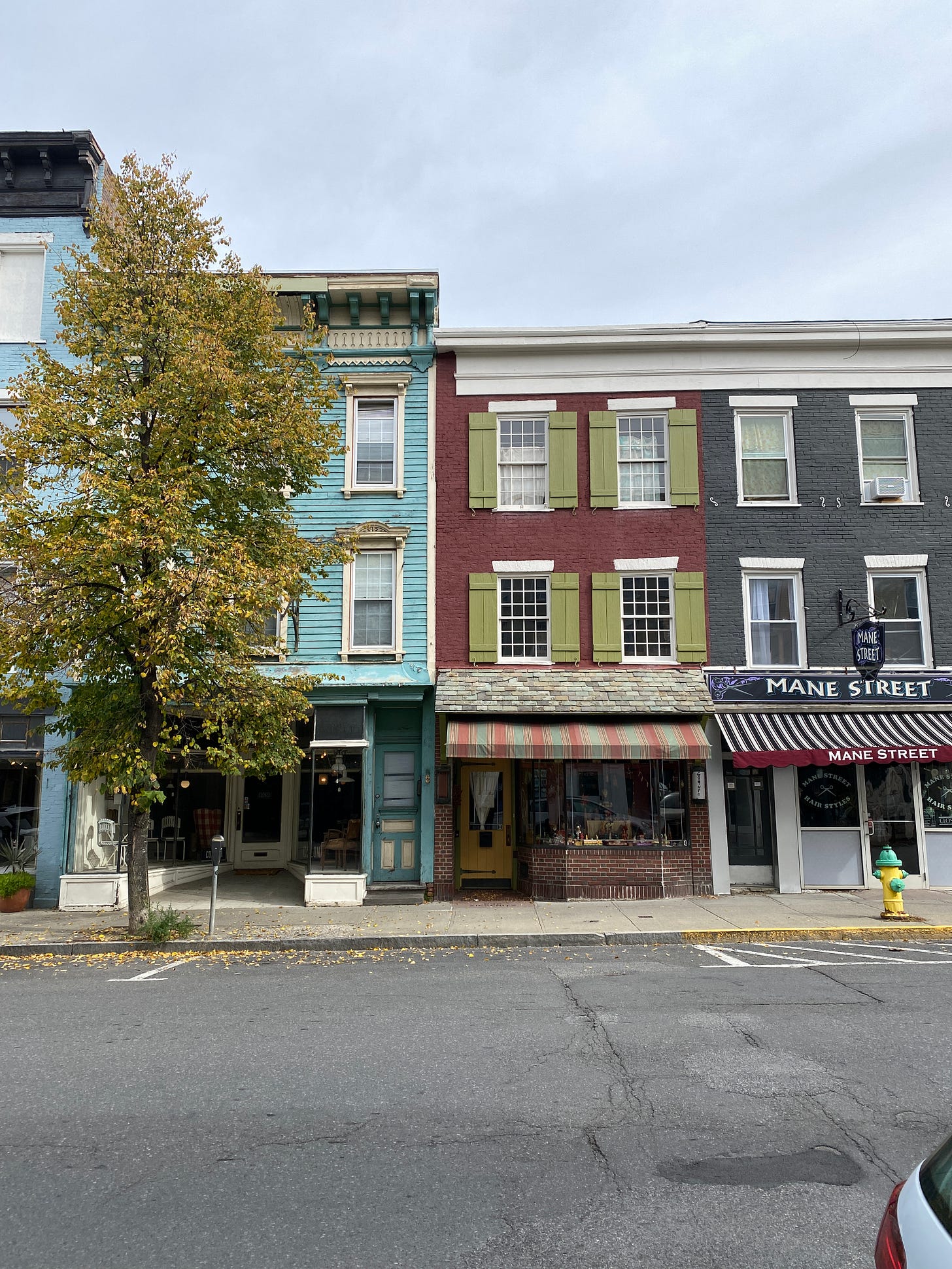I grew up in a suburban town outside of Dallas where I had (almost) everything: malls, movie theaters, multiple chain restaurants, thrift stores, amusement parks, arcades, and many local Mexican and Salvadoran restaurants. But sometimes I’d see small towns along the highway on my way to Houston or Austin and wonder what living in a small town with the closest grocery store 45 minutes away was like.
According to Google, a small town is defined by the US Census Bureau as having a population between 25,000 and 50,000 residents. I didn’t visit my first small town until moving to New York City. I remember being an intern at an ad agency and hearing my co-workers talking about “going upstate” for the weekend. I didn’t know what that was, but I quickly learned that outside of New York City were a lot of small towns that people loved going to. And so my love for visiting these small towns began.
My first trip was in 2018 to Peekskill, just an hour away from the city. There was a main street—which I later discovered is a recurring formula in these small towns—with a bookstore, a pizza shop, a diner, a cafe, and so on. The essentials.
Throughout the past few years, I’ve loved visiting these small towns outside of the city. Some of them are so tiny that they’re just villages or hamlets, which are “human settlements smaller than a town or village.”
A lot of these small towns outside of New York City also have great branding. Beacon! Catskill! Cold Spring! Woodstock! Kingston! Hudson! All the museums, hikes, farmers markets, artisanal candle stores, antique shops, curated stores with Dusen and Dusen towels, cute sandwich shops, fancy tinned fish, and $30 maple syrups (which are 100% worth it, by the way).
Some even have their taglines, like Trout Town or Small Town, Big Backyard. Some are nestled in the Catskills. Some have no reception. Some are right off the Metro-North. And after visiting maybe 30+ at this point, I have my favorites, like the ones in the middle of the Catskill Mountains with streams and rivers everywhere.
This all got me thinking about how some small towns are desirable, and others not so much. These select New York ones, for example, are nice to visit. They’re even aspirational. Maybe it’s because they’re close to New York City? But there are also just so many small towns out there. And they’re not all considered “cool.”
A Conversation with Someone From an “Uncool” Small Town
I have friends who grew up in small towns in other states and they hated it. I asked Aaron about what his experience was like growing up in a tiny town in Georgia. I actually visited his hometown recently and had never seen anything like it.
S: How would you describe your hometown?
A: The way you enter is the same way you get out. There’s a road that runs right through the middle of town. There is probably one little spot in the downtown that’s nice to walk around, and then that’s it. The whole town is spread apart across flat land. There are no art museums. And it’s cheap to live there because nothing is going on. The nicest thing it’s got going for it is that it’s close to a state park. And the funny thing is my town was like the New York City of small towns down there.
S: Why do you think your hometown is so different than the small towns we’ve visited in New York?
A: Geography. My hometown is flat, away from any major bodies of water, and the closest major city is Jacksonville, which isn’t necessarily known for its art or culture. New York benefits significantly from its geographical properties and proximity to such a diverse city like New York City. It has wildlife, mountains, farms, and restaurants, and there’s a demand for high-quality produce. In my hometown, for example, there are farms. But they are large, industrialized farms so it’s different. We use to have to cover our noses when we drove past the chicken farms. I still remember the stench. There is also a lack of education about farm-fresh produce. There is no '“farmers market” culture like in New York. Another big thing too is transportation. New York City is lucky to have many so many different trains that go all over and connect to small towns upstate. Small towns in the South don’t have that. If you don’t have a car, you’re stuck.
S: What do you remember about your childhood?
A: My parents were very active members of the Hispanic community in my town and I think overall, growing up in a small town made me curious about what was out there. I was really into computers as a kid and I figured I could make myself useful by learning how to use one. I knew that knowing how to use a computer could be my way out and it would help me find opportunities when I left the town. I remember telling my mom things like “I’m going to learn how to use Photoshop, so I can’t take out the trash right now.” I may not have been a city kid, but the internet was my city. I had all the time in the world to learn and wonder. And once I turned 18, I headed off to college and was determined to start over.
S: Looking back now, how do you think living in a small town shaped who you are now?
A: I used to be embarrassed by the place I grew up in because I felt like it wasn’t special or like I was really from there. I always felt like an outsider. But I had to leave my town to understand that maybe looking down on where you came from is really looking down on who you used to be. And once you leave your town and become who you’re becoming now, you look back at your younger self with more compassion and acceptance. You realize you wouldn’t have wanted to grow up anywhere else in the world because that would mean you’d have to be a different person.⚜
Thank you for reading! If you enjoyed this, please share, leave a comment, and subscribe. Say hello on Instagram and TikTok.







